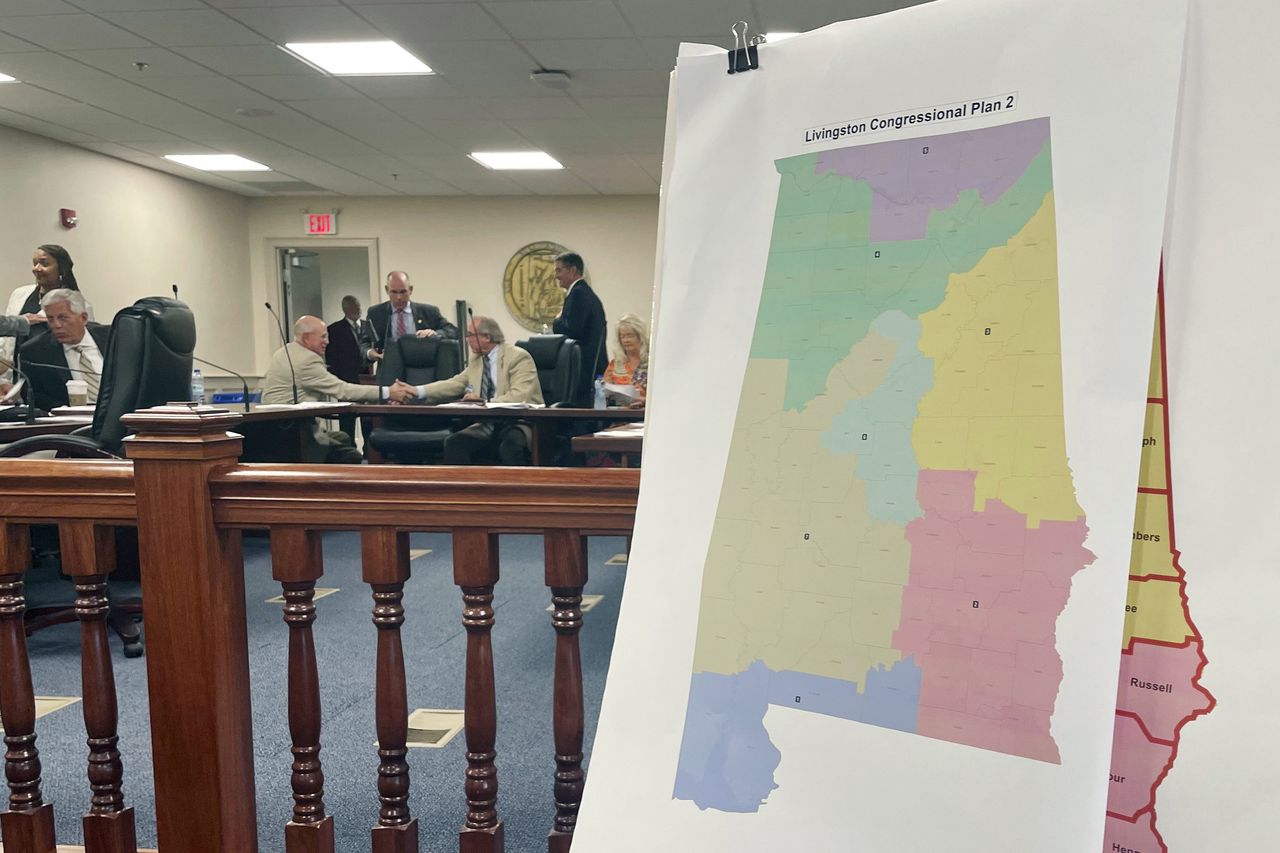Three-judge federal court denies Alabamaâs stay in redistricting case
A three-judge federal court on Monday denied a motion from Alabama’s secretary of state to stay a ruling requiring a special master to draw three potential congressional maps later this month after finding the state’s earlier redistricting proposals likely diluted the votes of Black Alabamians.
The three-judge panel in Birmingham federal court — comprised of U.S. Circuit Court Judge Stanley Marcus and U.S. District Court Judges Anna Manasco and Terry Moorer — found there was no “emergency” as alleged by Alabama Secretary of State Wes Allen, who also filed an emergency stay before the U.S. Supreme Court.
A special master has a Sept. 25 deadline to deliver three remedial maps to the federal court to decide Alabama’s congressional districts in the 2024 elections.
The judges wrote that Allen has not shown that Alabama is likely to prevail on the merits of the case while appealing the decision for a special master.
“We have said before that ‘this is a straightforward Section Two case, not a legal unicorn,’” they wrote. “This case remains straightforward. We are aware, however, of no other case — and the Secretary does not direct us to one — in which a state legislature, faced with a federal court order declaring that its electoral plan unlawfully dilutes minority votes and requiring a plan that provides an additional opportunity district, responded with a plan that the state concedes does not provide that district. Likewise, it is exceptionally unusual for a litigant who has presented his arguments to the Supreme Court once already — and lost — to assert that he is now ‘overwhelmingly likely’ to prevail on those same arguments in that Court in this case.”
There is no “emergency,” the judges wrote, adding that the schedule for alternative maps “are running on precisely the schedule agreed upon by all parties.”
“As an initial matter, there is no emergency. We ruled expeditiously, weeks in advance of the early October deadline that the Secretary twice told us he needed to make,” the judges ruled. “We have eleven illustrative maps in hand already, and the Special Master and his team are hard at work to recommend a lawful map for us to order the Secretary to use on the timetable that he set. In our view, these proceedings are running on precisely the schedule agreed upon by all parties.”
The judges also noted that Alabama lawmakers did not submit a motion for an emergency stay.
“This detail is not material to our separate and independent rejection of the Secretary’s arguments about Alabama’s sovereignty, but we cannot help but notice that the Legislators apparently do not share the Secretary’s concern about this ‘emergency,’’ they wrote.
“As a practical matter, the Legislators’ silence undermines the Secretary’s position. It is the Legislature’s task to draw districts; the Secretary simply administers elections,” the judges ruled.
The three-judge court had ruled last year, in a decision affirmed by the Supreme Court, that Alabama needed a second district where Black voters have an opportunity to elect a candidate of their choice.
But the map passed by the Legislature left one majority Black district out of seven in a state where 27% of residents are Black.
“Under these circumstances, we cannot understand why it would be a reasonable exercise of our discretion to order a stay pending the Secretary’s second appeal,” the judges wrote on Monday. “The law requires the creation of an additional district that affords Black Alabamians, like everyone else, a fair and reasonable opportunity to elect candidates of their choice. Without further delay.”
